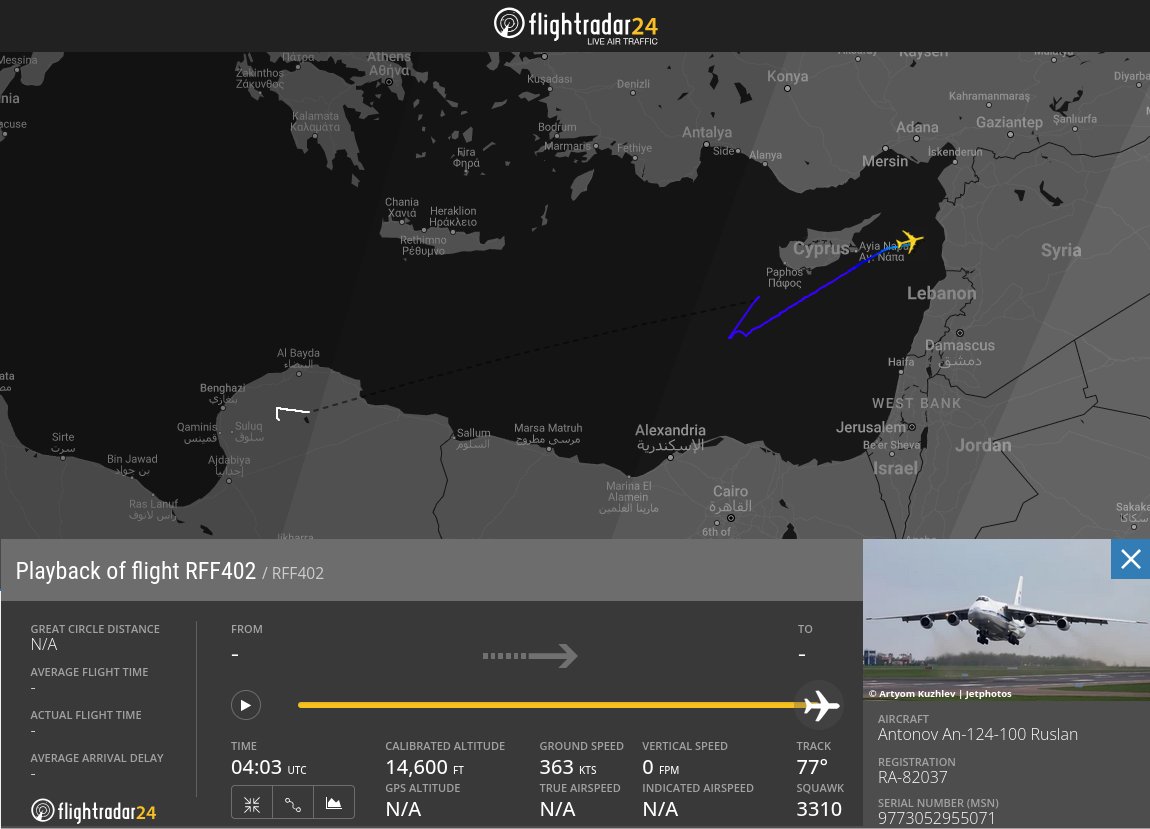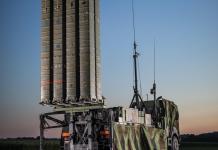Russia has ramped up its air traffic between Syria and Libya in recent weeks, signaling a shift in its strategic focus as Moscow seeks to expand its military presence in Africa and retain a foothold in the Mediterranean.
According to flight tracking data analyzed by CNN, Russian Antonov AN-124 and Ilyushin IL-76 transport planes have been making more than one flight per day since mid-December from the Hmeimim airbase in Syria to the al-Khadim airbase in eastern Libya, near Benghazi.
The increase in flights follows the removal of Syrian leader Bashar al-Assad from power and seems to be a key element of Russia’s larger plan to sustain its influence in the region.
For nearly a decade, the Hmeimim airbase and Tartus naval base in Syria have served as central hubs for Russia’s military activities in the Mediterranean and its African operations. Now, the conflict-ridden nation of Libya is becoming increasingly important in Russia’s efforts to project power into the Mediterranean.
Earlier reports from US and Western officials indicated that Russia had started withdrawing a significant amount of military equipment and personnel from Syria.

Some of this equipment, including advanced air defense systems, appears to have been moved to Libya. On December 28, a Russian Antonov aircraft returned to Syria from Libya.
Hmeimim has long served as the hub for Russia’s mercenary operations across Africa, including in the Central African Republic, Sudan, Libya, Mali, and Burkina Faso.
With this new logistical route through Libya, Moscow seeks to sustain its growing military and mercenary presence in Africa while mitigating the costs associated with its reduced involvement in Syria.
Geolocated footage has shown that some of the flights from Libya have continued on to Bamako in Mali, an area where Russian influence has been expanding, particularly as the country seeks to replace French forces with Russian mercenaries.
This pattern of increased activity further supports the notion that Russia is positioning Libya as a critical hub for its operations in Africa.
While Russia has maintained a presence in Libya for years, supporting Libyan General Khalifa Haftar and his forces, the recent flight patterns suggest a deepening of its ties with Haftar.
Russian officials, including Deputy Defense Minister Yunus-Bek Yevkurov, have made several trips to Libya to strengthen relations with Haftar, and the Russian navy may be eyeing Haftar-controlled ports as potential alternatives to the Tartus base in Syria.
A Threat To NATO
Since 2014, Libya has been administered by two rival governments: the UN-backed Government of National Unity (GNU) in the west and the House of Representatives in the east, which the former warlord-turned-politician Khalifa Haftar supports.
Haftar controls a number of armed groups in the eastern region. For years, both sides have attempted to overpower each other but have failed, leaving the conflict at a stalemate and resulting in ongoing insecurity.
This deadlock has led to fragile stability, largely maintained due to the involvement of foreign powers, particularly Russia and Turkey.
According to Frederic Wehrey, a senior fellow at the Carnegie Endowment for International Peace, the conflict has remained contained, with these foreign military presences acting as stabilizing forces.
However, Wehrey warned that the political instability in the region could worsen, especially in light of changes in Syria, where the downfall of Bashar al-Assad could have ripple effects on other conflict zones, including Libya. There are concerns that Libya could follow Syria’s path toward a more intense and broader conflict.

Russia’s role in Libya is crucial in this regard. A potential shift in Russia’s strategy could involve establishing a more permanent military presence in Libya, which would pose a significant challenge to NATO. A senior NATO official confirmed that the alliance is closely monitoring activities in key Libyan cities such as Tobruk and Benghazi.
The Mediterranean is strategically important for Russia, especially considering the limitations faced by its Black Sea fleet, which cannot pass through the Bosphorus due to the ongoing war with Ukraine.
While Libya could serve as a potential naval base for Russian warships, it is considered less ideal than Syria.
Russian transport planes would need to pass through Turkish airspace to reach Libya. This limitation makes Turkish President Recep Tayyip Erdogan a key player in this geopolitical chess game.
Despite Haftar’s relationships with various foreign supporters, including Russia, his position remains precarious.
Analysts suggest that while Haftar has tried to balance these relationships to avoid over-dependence on any one power, his decision regarding Russia’s military presence in Libya could shift the region’s balance even further.
If Haftar permits Russia to establish a more permanent presence in Libya, it could spark opposition from NATO and other global actors, leading to tensions that might escalate over time.
- Contact the author at ashishmichel(at)gmail.com
- Follow EurAsian Times on Google News




